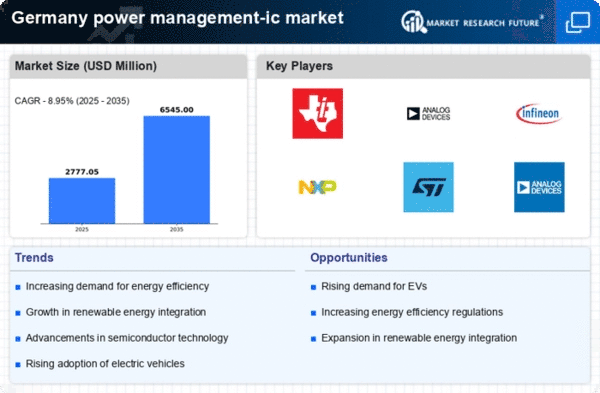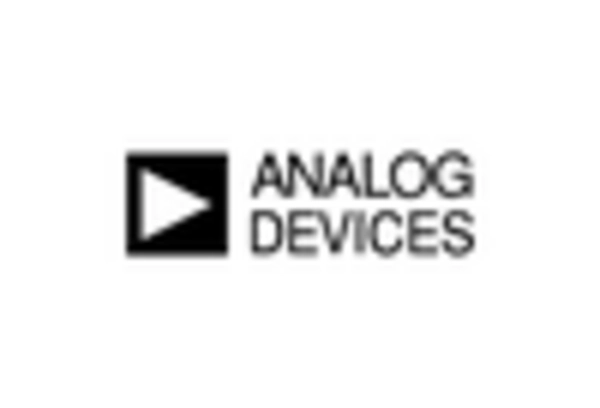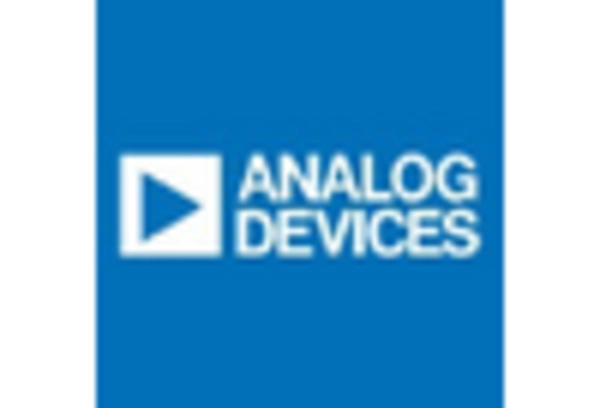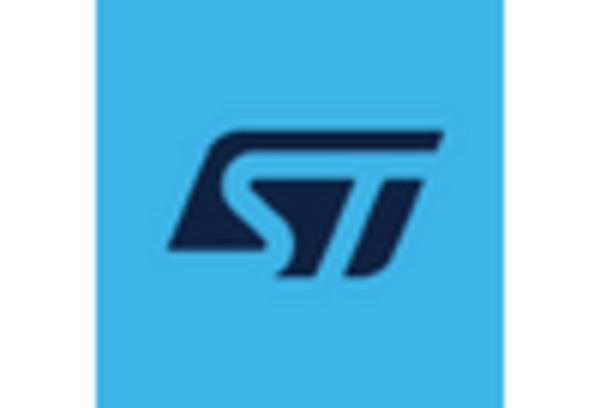Rising Demand for Smart Devices
The increasing adoption of smart devices in Germany is driving the power management-ic market. As consumers seek more energy-efficient solutions, manufacturers are compelled to integrate advanced power management technologies into their products. In 2025, the smart home market in Germany is projected to reach €5 billion, indicating a robust demand for power management-ic solutions. This trend is likely to enhance the efficiency of devices, thereby reducing energy consumption. Furthermore, the proliferation of IoT devices necessitates sophisticated power management systems to ensure optimal performance and longevity. Consequently, the power management-ic market will likely grow significantly as manufacturers respond to this rising demand..
Advancements in Industrial Automation
The ongoing advancements in industrial automation are reshaping the power management-ic market landscape in Germany. As industries increasingly adopt automation technologies, the need for efficient power management systems becomes paramount. In 2025, the industrial automation market is projected to grow by 15%, creating a substantial demand for power management-ic solutions. These systems are essential for optimizing energy usage in automated processes, thereby reducing operational costs. Furthermore, the integration of power management technologies in manufacturing processes can lead to improved productivity and sustainability, positioning the power management-ic market as a vital player in the industrial sector.
Emergence of Energy Storage Solutions
The emergence of energy storage solutions is significantly impacting the power management-ic market in Germany. As the country transitions towards renewable energy sources, the need for efficient energy storage systems becomes increasingly critical. By 2025, the energy storage market is expected to reach €3 billion, driven by the demand for reliable power management-ic solutions. These technologies are essential for managing energy flow, ensuring that stored energy is utilized effectively. The integration of power management-ics in energy storage systems not only enhances efficiency but also supports the stability of the energy grid, making it a key driver for growth in the power management-ic market.
Growth of Electric Mobility Initiatives
The surge in electric mobility initiatives in Germany is a pivotal driver for the power management-ic market. With the government aiming for 1 million electric vehicles (EVs) on the road by 2025, the demand for efficient power management solutions is expected to rise. Power management-ics play a crucial role in optimizing battery performance and extending the range of EVs. As automotive manufacturers increasingly focus on integrating advanced power management technologies, the market is likely to witness a significant uptick. This shift not only supports the transition to sustainable transportation but also enhances the overall efficiency of electric mobility solutions.
Government Regulations on Energy Consumption
Germany's stringent regulations regarding energy consumption are significantly influencing the power management-ic market. The government has implemented various policies aimed at reducing carbon emissions and promoting energy efficiency. For instance, the Energy Efficiency Act mandates that companies adopt energy-saving technologies, which directly impacts the demand for power management-ic solutions. By 2025, it is anticipated that compliance with these regulations will drive a 20% increase in the adoption of power management technologies across various sectors. This regulatory environment not only encourages innovation but also positions the power management-ic market as a critical component in achieving national energy goals.














